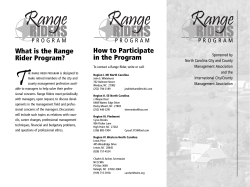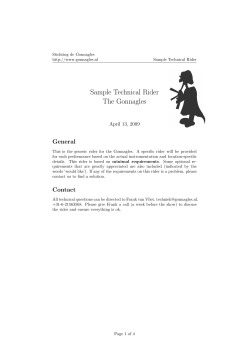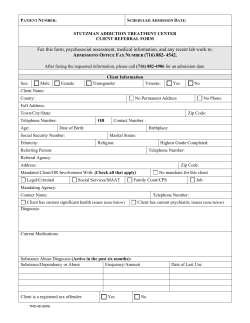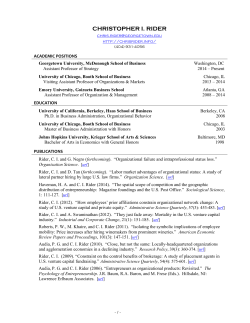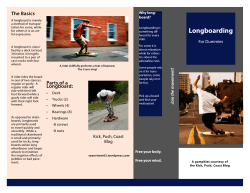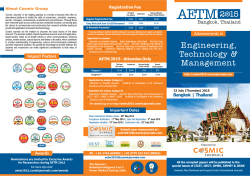
Who We Are How To Apply National Writing Project at Rider University
How To Apply To apply to NWP@Rider’s Invitational Summer Institute: 1. Complete the application form. You may obtain this form at: www.nwprider.org 2. Have an administrator/ supervisor complete the administrator/ supervisor’s recommendation form. You may obtain this form at: www.nwprider.org 3. Mail your completed application package (the application form as well as the administrator/ supervisor’s recommendation form to: Attention: ISI Committee National Writing Project at Rider University Memorial Hall 102 2083 Lawrenceville Road Lawrenceville, NJ 08648 Who We Are NWP@Rider is an affiliate of the National Writing Project. Begun in 1973 as the Bay Area Writing Project at the University of California at Berkeley, the National Writing Project (NWP) has grown into a national network of projects. The NWP is a professional development network that serves teachers of writing at all grade levels, primary through university, and in all subjects. The mission of the NWP is to improve student achievement by improving the teaching of writing and learning in the nation’s schools. www.nwp.org As an affiliate of the National Writing Project, NWP@Rider is sanctioned by the No Child Left Behind Act. All applicants will receive confirmation of their application once a completed application package has been received. For more information contact: Prior to acceptance, applicants will be interviewed by the ISI committee and/or members of the NWP@Rider Leadership Team. or visit us at: www.nwprider.org inservice@nwprider.org National Writing Project at Rider University (NWP@Rider) Invitational Summer Institute 2010 8:30 a.m. – 2:45 p.m. Location: Rider University (Tuesday thru Friday) July 6, 7, 8, 9 (Monday thru Thursday) July 12, 13, 14, 15 July 19, 20, 21, 22 July 26, 27, 28, 29 3 Graduate Credits Cost: $1,800 Pre-Institute: Tues. May 18, 2010 4:30 p.m. - 6:30 p.m. 4 dates in the 2010-2011 school year To be Announced What is it? The Invitational Summer Institute (ISI) is at the core of the National Writing Project's model of "teachers teaching teachers." ISI is an intensive four-week course which provides teachers an opportunity to strengthen and polish good teaching of writing across the curriculum. The development of writing at all grade levels and in the content areas will be examined. Applicants may be pre-school through college teachers and administrators across all subject areas and from various school districts. In a casual, collaborative setting, applicants accepted into the institute, Summer Fellows, will become part of a reading and writing community. Professional books, trade books and journals will be available for inquiry, research and discussion. Summer Fellows will experience and reflect on literacy processes as they read like writers, write like readers, and create and publish their own writing. At the core of the ISI is the demonstration lesson. Fellows, with much coaching and support, will develop a 90 minute presentation that may be used for site and district level professional development. Those who successfully complete the ISI will earn... the title of Teacher Consultant and qualification to provide staff development workshops to the region’s schools 3 graduate credits from Rider University 54 professional development hours It is expected that Summer Fellows will: attend every day of the institute and actively participate in reading, writing, discussions and journal groups. develop and present a demonstration lesson. attend four follow-up support meetings in the school year following the summer institute attended. Who Should Apply Skilled teachers and administrators who... consider themselves as leaders in research-based best practices in literacy. desire to deepen their knowledge and understanding of literacy instruction. are concerned about improving their knowledge of writing and how to teach it. wish to provide leadership in the improvement of writing instruction. want to become part of a “teachers teaching teachers” model of professional development. This may take the form of conducting workshops, running a staff meeting, facilitating small group discussions or simply coaching an individual teacher.
© Copyright 2025



